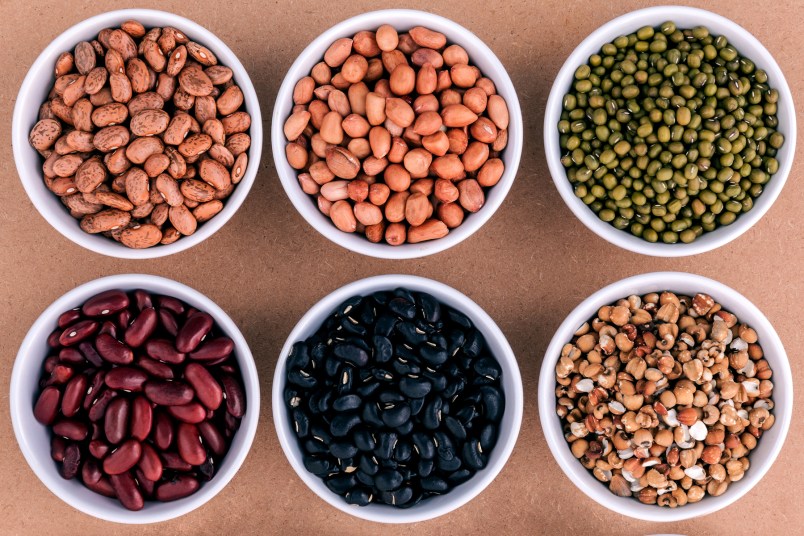This Type of Fiber Helps With Weight Loss and Belly Fat
Not all fiber is created equal.

Fiber is one of those things that seems to always come up in any conversation about nutritional wellness. And with good reason: Fiber is important for so many bodily functions. Not only does it improve gut health, but it’s also been linked to the prevention of several chronic conditions like diabetes and high cholesterol. But when it comes to weight loss there’s a specific type of the nutrient you need to make sure to include in your diet — soluble fiber.
Soluble Fiber Vs. Insoluble Fiber
Soluble and insoluble fiber are the two major types of fibers. The difference is that insoluble fiber doesn’t absorb water, so it helps form the bulk that makes up your stool. Soluble fiber absorbs water, making stools softer and helping move them through your bowels. (Click through to learn how soluble fiber is rich in dishes like overnight oats.)
The Difference in Weight Loss
Soluble and insoluble fiber are both super important for a healthy digestive tract and thus, a healthy weight. However, soluble fiber offers a few proven benefits when it comes to helping with weight loss.
For one, soluble fiber is the food which the healthy bacteria in your gut (known as probiotics) thrive on. Soluble fiber remains mostly unchanged as it moves through your digestive tract. Therefore, those good microbes in your gut are able to use it for energy! Because of this, soluble fiber (sometimes called prebiotic fiber) has been found to boost our health in more ways than one, especially when it comes to losing weight. Specifically, it’s shown to reduce risk factors for obesity and metabolic syndrome.
Eating more soluble fiber has also been linked to lower visceral fat — yup, that’s belly fat — because it slows down how fast the stomach releases digested food into the gut. This make it so the food can be used more efficiently for energy, rather than get stored as body fat. A growing body of research supports this, showing that those who consume more soluble fiber have less belly fat. One study even found that increasing daily soluble fiber intake by 10 grams a day was linked to a lower risk of gaining belly fat.
And finally, soluble fiber may help you lose weight if you suffer from chronic inflammation. Inflammation occurs when your body’s immune defenses work to fight off foreign invaders like harmful bacterias, viruses, and other toxins. Chronic inflammation, which is when your immune system is working overtime to fight off such invaders, has been linked to a host of health conditions (like type 2 diabetes and metabolic syndrome) as well as weight gain and excess body fat. Soluble fiber, however, has shown to reduce inflammatory markers that have been associated with weight gain!
Foods With Insoluble Fiber
If you’re ready to start including more soluble fiber in your diet, it’s easy. While there are plenty of fiber supplements out there, some may cause digestive upset, so the best way to get more of it is adding it to your diet. Add more foods like beans, avocados, Brussels sprouts, broccoli, sweet potatoes, pears, apples, carrots, figs, flaxseeds, oats, and barley to your plate!
Here’s to meeting our health and weight loss goals!
















